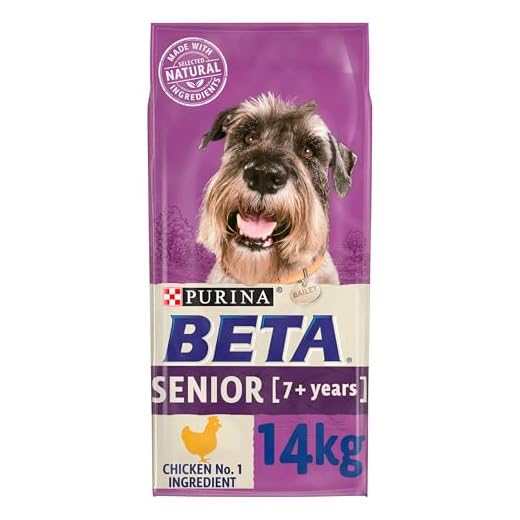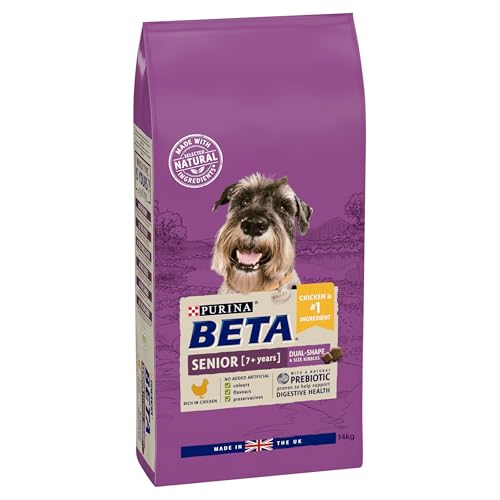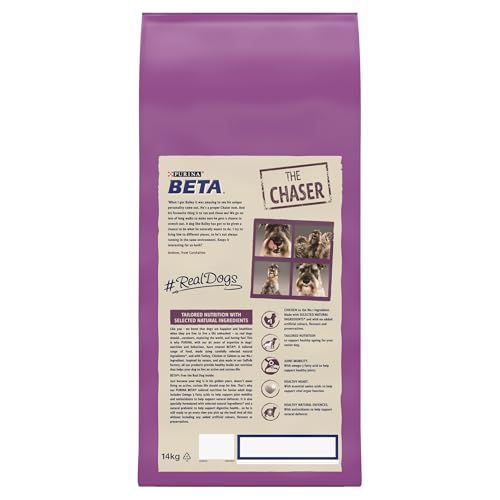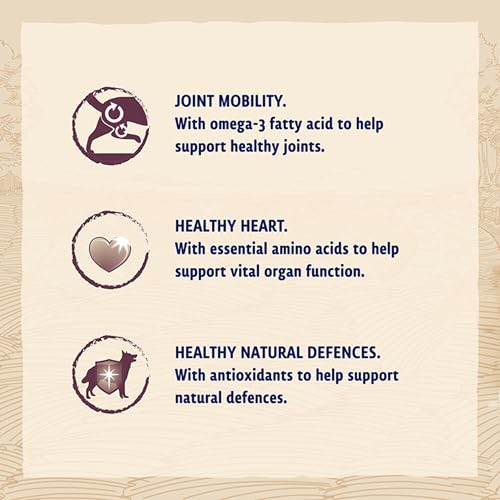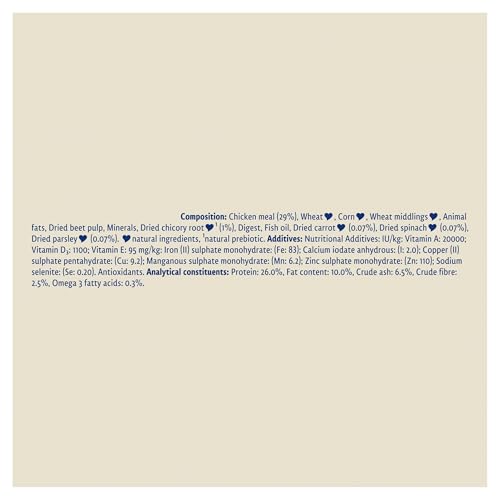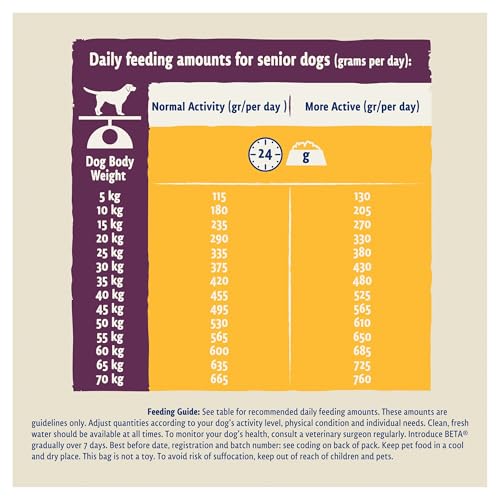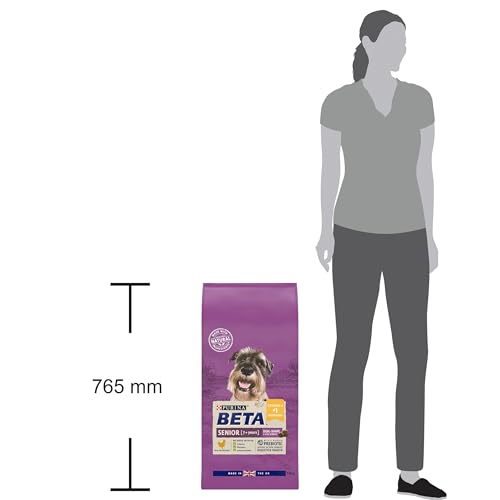




As a devoted pet owner, I know firsthand how challenging it can be to manage a senior dog’s health, especially when they suffer from skin allergies. Over the years, I’ve learned that diet plays a crucial role in managing these issues. Finding the right food for senior dogs with sensitive skin requires patience, research, and a bit of trial and error. In this article, I’ll share my insights and experiences to help you make informed decisions about your furry friend’s diet.
Senior dogs, much like senior humans, have specific dietary needs. Their metabolism slows down, and they may become less active, requiring fewer calories but more nutrients to support their aging bodies. When allergies come into play, things get even more complicated. Common allergens such as grains, certain proteins, and artificial additives can exacerbate skin conditions, leading to itching, inflammation, and discomfort for your dog.
In my journey to find the best dog food for my senior dog, I discovered that the key is to look for foods that are not only rich in essential nutrients but also free from common allergens. Ingredients like salmon, sweet potatoes, and brown rice often work wonders, providing a balanced diet that supports overall health while being gentle on sensitive skin. Additionally, novel protein sources like venison or duck can be beneficial for dogs with specific protein sensitivities.
Through careful consideration and consultation with veterinarians, I’ve compiled a list of top-recommended dog foods that cater specifically to senior dogs with skin allergies. These options are formulated to provide complete nutrition while minimizing the risk of allergic reactions. Let’s delve into the specifics of what makes these foods stand out and how they can contribute to your senior dog’s well-being.
Understanding Skin Allergies in Senior Dogs
As our furry friends age, they can become more susceptible to a variety of health issues, including skin allergies. Senior dogs may develop sensitivities and allergic reactions that they never experienced in their younger years. It’s important to recognise the signs and understand the underlying causes of these skin issues to provide the best care for our ageing companions.
Skin allergies in older dogs can manifest in several ways, including itching, redness, and inflammation. These symptoms can lead to discomfort and even secondary infections if not properly managed. Identifying the specific allergen can be challenging, as it could be related to food, environmental factors, or even parasites. By closely monitoring your dog’s symptoms and consulting with a veterinarian, you can start to pinpoint potential triggers and take steps to alleviate their discomfort.
Common Causes of Skin Allergies in Senior Dogs
There are several factors that can contribute to the development of skin allergies in senior dogs. Understanding these causes can help in managing and preventing allergic reactions.
- Food Allergies: Some dogs develop allergies to certain ingredients in their diet as they age. Common culprits include beef, dairy, wheat, and chicken. Switching to a hypoallergenic or limited-ingredient diet can sometimes alleviate symptoms.
- Environmental Allergens: Pollen, dust mites, and mould are just a few of the environmental factors that can trigger allergic reactions. Regular cleaning and using air purifiers can help reduce exposure to these allergens.
- Parasites: Fleas, ticks, and mites can cause significant skin irritation and allergic reactions. Keeping your dog on a regular flea and tick prevention regimen is crucial for their comfort and health.
- Contact Allergens: Certain materials like plastic, rubber, or specific fabrics can cause contact dermatitis in dogs. Switching to stainless steel bowls and hypoallergenic bedding can make a big difference.
In conclusion, managing skin allergies in senior dogs requires a multifaceted approach. By identifying and addressing the specific allergens, providing a balanced and hypoallergenic diet, and maintaining a clean and parasite-free environment, you can significantly improve your senior dog’s quality of life. Always consult with a veterinarian for a tailored plan that suits your dog’s unique needs.
Key Ingredients to Look for in Dog Food for Skin Allergies
Choosing the right dog food for a senior dog with skin allergies requires careful consideration of specific ingredients that can alleviate symptoms and promote healthy skin. The focus should be on hypoallergenic ingredients that minimise the risk of allergic reactions and support overall skin health.
One of the primary components to seek in dog food for skin allergies is a novel protein source. Traditional proteins such as chicken or beef are common allergens, so opting for less common proteins like venison, duck, or fish can significantly reduce the likelihood of an allergic reaction. These novel proteins are less likely to have been previously encountered by the dog’s immune system, thereby reducing the risk of allergies.
Essential Ingredients for Skin Health
- Omega-3 and Omega-6 Fatty Acids: These essential fatty acids play a crucial role in maintaining healthy skin and coat. They help to reduce inflammation and keep the skin hydrated. Look for dog food that includes fish oil or flaxseed oil as a source of these fatty acids.
- Hydrolysed Proteins: Hydrolysed proteins are broken down into smaller components, making them less likely to trigger an immune response. This can be especially beneficial for dogs with severe allergies.
- Probiotics: A healthy gut flora is essential for overall health, including skin health. Probiotics support digestion and the immune system, which can help manage and prevent skin allergies. Ingredients like fermented vegetables or added probiotic supplements are valuable additions.
- Vitamins and Minerals: Vitamins A, E, and zinc are particularly important for skin health. They support cell repair and regeneration, which can help heal irritated skin. Ensure the dog food includes these essential nutrients.
- Avoid Artificial Additives: Artificial colours, flavours, and preservatives can exacerbate allergies and skin issues. Opt for natural dog food that avoids these additives to reduce the risk of adverse reactions.
In conclusion, selecting the appropriate dog food for a senior dog with skin allergies involves focusing on specific ingredients that promote skin health and reduce allergic reactions. Novel proteins, essential fatty acids, hydrolysed proteins, probiotics, and key vitamins and minerals are all vital components to look for. Avoiding artificial additives further ensures the food supports your dog’s skin health without triggering allergies.
Best Dog Foods for Older Dogs with Skin Allergies
As our canine companions grow older, their dietary needs change significantly. If your senior dog is suffering from skin allergies, choosing the right food can make a substantial difference in their quality of life. I have compiled a list of the best dog foods designed specifically for senior dogs with sensitive skin.
Each option has been selected based on its ingredient quality, nutritional balance, and effectiveness in reducing allergic reactions. These foods can help alleviate symptoms like itching, redness, and inflammation, promoting healthier skin and a happier dog.
Recommended Foods for Senior Dogs with Skin Sensitivities
-
Hill’s Science Diet Adult 7+ Sensitive Stomach & Skin
This formula is tailored for older dogs, focusing on digestive health and skin protection. It contains easily digestible ingredients, with a blend of omega-6 fatty acids and vitamin E to nourish your dog’s skin and coat.
-
Blue Buffalo Life Protection Formula Senior Dog Food
Crafted with high-quality protein from deboned chicken, this food supports muscle maintenance. It includes LifeSource Bits, a precise blend of antioxidants, vitamins, and minerals that support immune health and skin integrity.
-
Purina Pro Plan Focus Adult 7+ Sensitive Skin & Stomach
Specifically designed for older dogs with sensitive skin and stomachs, this food features salmon as the first ingredient. It also includes prebiotic fibre for digestive health and omega-3 fatty acids for skin and coat nourishment.
-
Nutro Wholesome Essentials Senior Dry Dog Food
Containing non-GMO ingredients, this formula includes essential antioxidants for immune support and omega-6 fatty acids to help maintain healthy skin and a soft, shiny coat. The first ingredient is farm-raised chicken, ensuring high-quality protein.
-
Wellness Simple Limited Ingredient Diet Senior Dog Food
This food is ideal for dogs with food sensitivities, featuring a limited ingredient list to minimise the risk of allergic reactions. It includes high-quality protein and easily digestible carbohydrates, promoting healthy skin and digestion.
Choosing the right food for your senior dog with skin allergies can be challenging, but these options provide a great starting point. Always consult with your veterinarian to ensure the food meets your dog’s specific needs and to make any necessary dietary adjustments.
Grain-Free Dog Foods: Are They Better for Allergies?
As a devoted dog owner, I’ve always been concerned about providing the best possible nutrition for my senior dog, especially as she started developing skin allergies. This led me to explore various dietary options, including grain-free dog foods, which are often touted as a solution for allergies. However, the question remains: are grain-free diets truly better for managing allergies in dogs?
Grain-free dog foods eliminate common grains like wheat, corn, and soy, replacing them with alternative carbohydrate sources such as potatoes, peas, and lentils. The premise behind grain-free diets is that grains can be common allergens for some dogs, contributing to skin irritations and other allergic reactions. By removing these potential allergens, the idea is that dogs will experience fewer allergy symptoms and overall better skin health.
The Pros and Cons of Grain-Free Diets
Advantages:
- Potential Reduction in Allergic Reactions: For dogs that are genuinely allergic to grains, switching to a grain-free diet can lead to noticeable improvements in skin condition and a reduction in itching and inflammation.
- Improved Digestion: Some dogs may have difficulty digesting grains, leading to gastrointestinal issues. Grain-free foods often use more digestible carbohydrates, which can help improve digestive health.
- High-Quality Ingredients: Many grain-free dog foods are made with high-quality proteins and other ingredients, which can contribute to overall better health and vitality for senior dogs.
Disadvantages:
- Nutritional Balance: Removing grains can sometimes lead to a lack of certain nutrients. It’s essential to ensure that the grain-free food you choose is nutritionally balanced and meets all of your dog’s dietary needs.
- Cost: Grain-free dog foods are often more expensive than their grain-inclusive counterparts, which can be a consideration for long-term feeding.
- Potential Misdiagnosis: Not all skin allergies are caused by grains. Other ingredients, such as certain proteins or environmental factors, can also trigger allergies. It’s important to identify the true cause of the allergies before making dietary changes.
In my experience, switching to a grain-free diet did help my senior dog with her skin allergies. However, it’s crucial to remember that each dog is unique, and what works for one may not work for another. Consulting with a veterinarian can provide guidance tailored to your dog’s specific needs, ensuring that you choose the best dietary option for managing their allergies.
How to Safely Transition Your Senior Dog to a New Diet
Changing your senior dog’s diet, especially when dealing with skin allergies, requires careful planning and attention to detail. Sudden dietary changes can upset their digestive system and exacerbate existing health issues. Therefore, a gradual approach is essential to ensure a smooth transition.
Start by mixing a small amount of the new food with your dog’s current food. This allows your dog’s digestive system to acclimate to the new ingredients gradually. Over the course of a week or two, slowly increase the proportion of the new food while decreasing the amount of the old food. Monitor your dog’s reaction closely during this period.
Steps to Transition Your Senior Dog’s Diet
- Day 1-3: Mix 25% of the new food with 75% of the current food.
- Day 4-6: Adjust the mixture to 50% new food and 50% current food.
- Day 7-9: Increase the new food to 75% and reduce the current food to 25%.
- Day 10-12: Serve 100% of the new food.
It’s crucial to observe your dog’s behaviour and physical condition throughout the transition. Look out for signs of digestive upset, such as vomiting, diarrhoea, or constipation. Additionally, monitor their skin condition to ensure the new diet is alleviating their allergies and not worsening them.
If your dog shows any signs of distress or adverse reactions, slow down the transition process. Sometimes, extending the transition period can help their system adapt more comfortably. In severe cases, it might be necessary to consult your veterinarian for tailored advice or alternative dietary options.
Remember, patience and careful monitoring are key to successfully changing your senior dog’s diet. By taking these steps, you can help ensure your dog adapts well to their new food, ultimately supporting their overall health and wellbeing.
Homemade Dog Food Recipes for Senior Dogs with Allergies
As our furry friends grow older, they may develop sensitivities and allergies that require special dietary considerations. My senior dog started having skin issues, and after some research and consultation with our vet, I decided to try homemade dog food. It’s been a journey, but creating tailored meals for my dog has made a significant difference in his health and happiness.
When making homemade food for senior dogs with allergies, it’s crucial to choose ingredients that are gentle on their stomachs and won’t trigger any allergic reactions. Here are some recipes and tips I’ve found helpful.
Simple and Nutritious Recipes
Chicken and Sweet Potato Mix
- 1 pound of ground chicken
- 1 large sweet potato, peeled and cubed
- 1 cup of chopped carrots
- 1/2 cup of peas
- 1 tablespoon of olive oil
- 1/2 teaspoon of turmeric
- In a large pot, cook the ground chicken until fully browned.
- Add the sweet potatoes, carrots, and peas. Pour in enough water to cover the ingredients.
- Simmer for about 20 minutes, or until the vegetables are tender.
- Drain any excess water, then stir in the olive oil and turmeric.
- Let the mixture cool before serving it to your dog.
Turkey and Rice Delight
- 1 pound of ground turkey
- 1 cup of brown rice
- 1 cup of chopped spinach
- 1/2 cup of grated zucchini
- 1 tablespoon of fish oil
- 1/2 teaspoon of dried rosemary
- Cook the brown rice according to the package instructions and set aside.
- In a large skillet, cook the ground turkey until no longer pink.
- Add the spinach and zucchini, cooking until the vegetables are soft.
- Mix in the cooked brown rice, fish oil, and rosemary.
- Allow the food to cool before feeding it to your dog.
These recipes provide balanced nutrition while avoiding common allergens. However, it’s always best to consult with your vet before making any significant changes to your dog’s diet. Each dog is unique, and what works for one may not work for another. By paying close attention to your dog’s reactions and working with your vet, you can ensure your senior dog stays healthy and comfortable.
Supplements That Help Alleviate Skin Allergies in Senior Dogs
As our furry companions age, they often become more susceptible to skin allergies, which can be distressing for both the dog and the owner. Finding the right supplements can significantly improve their quality of life by reducing itching, redness, and inflammation. In my experience, integrating specific supplements into your senior dog’s diet can make a noticeable difference.
When my senior dog started showing signs of skin allergies, I researched various supplements that could provide relief. After consulting with our vet and trying out several options, I discovered a few key supplements that effectively alleviated his symptoms. Here are some supplements I found particularly beneficial.
Beneficial Supplements for Senior Dogs with Skin Allergies
-
Omega-3 Fatty Acids: Omega-3 fatty acids, found in fish oil, are well-known for their anti-inflammatory properties. These fatty acids help reduce inflammation and soothe irritated skin. I noticed a significant reduction in my dog’s itching and redness after introducing fish oil supplements into his diet.
-
Probiotics: Probiotics support a healthy gut microbiome, which is crucial for a strong immune system. By improving gut health, probiotics can help manage skin allergies from the inside out. Incorporating a high-quality probiotic supplement has helped my dog maintain a balanced immune response, reducing allergic reactions.
-
Quercetin: Known as nature’s antihistamine, quercetin can help block the release of histamines that cause allergic reactions. I found that quercetin supplements significantly reduced my dog’s scratching and discomfort during allergy flare-ups.
-
Vitamin E: This antioxidant helps repair and protect the skin from damage caused by allergies. Adding vitamin E to my dog’s regimen improved his skin’s overall health and resilience against allergens.
-
Digestive Enzymes: These enzymes assist in breaking down food and improving nutrient absorption, which can be particularly beneficial for dogs with food sensitivities. Since adding digestive enzymes to my dog’s meals, his skin has shown less irritation and inflammation.
Using these supplements, tailored to my senior dog’s needs, has made managing his skin allergies much easier. Always consult with your veterinarian before introducing new supplements to ensure they are safe and appropriate for your dog’s specific health conditions. With the right approach, you can help your senior dog enjoy a more comfortable and itch-free life.
Common Mistakes to Avoid When Selecting Dog Food for Allergies
When it comes to choosing the right food for a dog with skin allergies, avoiding common mistakes is paramount for their well-being. Through my experience, I’ve learned several crucial errors pet owners often make in this process.
One frequent blunder is overlooking the ingredient list. It’s easy to focus solely on the front label’s claims, but the real truth lies in the fine print. Ingredients such as grains, fillers, and artificial additives can exacerbate allergic reactions in sensitive dogs. Therefore, it’s essential to meticulously scrutinize every component listed to ensure it aligns with your pet’s dietary needs.
- Ignoring protein sources: A key oversight is disregarding the protein sources in the dog food. While some proteins may be suitable for most dogs, they could trigger allergic responses in others. Understanding your dog’s specific sensitivities and opting for hypoallergenic protein options, such as salmon or venison, can significantly alleviate potential allergic reactions.
- Failure to consult a veterinarian: Another common pitfall is neglecting to seek professional advice before switching to a new diet. Veterinarians play a crucial role in identifying allergens and recommending suitable dietary adjustments. Their expertise can help steer you towards specialised formulas tailored to your senior dog’s unique needs, ensuring a balanced diet while addressing allergic concerns.
- Overlooking gradual transitions: Transitioning to a new diet too quickly is a mistake many pet owners make, especially when attempting to alleviate allergies. Abrupt dietary changes can shock a dog’s system and lead to gastrointestinal upset or worsen existing skin conditions. Gradually introducing the new food over several days allows the digestive system to adapt and minimises the risk of adverse reactions.
Success Stories: Senior Dogs Thriving on Allergy-Friendly Diets
Over the years, countless senior dogs have experienced remarkable transformations after switching to allergy-friendly diets. Here are a few heartwarming success stories that highlight the positive impact of these specialized nutrition plans:
1. Rusty: Rusty, a 12-year-old Labrador Retriever, had been suffering from chronic itching and skin irritation for years. His owner, Mary, decided to transition him to a hypoallergenic diet rich in omega-3 fatty acids and limited ingredients. Within a few weeks, Rusty’s itching subsided, and his coat regained its luster. Today, he enjoys his golden years with newfound comfort and vitality.
- Key Takeaway: With the right diet, even long-standing skin allergies can be effectively managed, allowing senior dogs like Rusty to live their best lives.
2. Lola: Lola, a 10-year-old Shih Tzu, battled with recurrent ear infections and inflamed skin patches due to food sensitivities. Her owner, Tom, switched her to a grain-free diet supplemented with probiotics and antioxidants. Within a month, Lola’s symptoms greatly improved, and she regained her playful demeanor. Now, she enjoys daily walks in the park without the discomfort of her previous allergies.
- Key Takeaway: Tailoring the diet to address specific allergies can significantly enhance the quality of life for senior dogs like Lola, allowing them to enjoy their senior years to the fullest.
These success stories serve as a testament to the transformative power of allergy-friendly diets for senior dogs. By providing targeted nutrition and eliminating potential triggers, pet owners can help their beloved companions thrive in their golden years, free from the discomfort of skin allergies.
Best Dog Food For Senior Dogs With Skin Allergies
Features
| Part Number | 12231689 |
| Model | 12531980 |
| Color | transparent |
| Release Date | 2014-05-23T00:00:01Z |
| Size | 1 count (Pack of 1) |
Features
| Part Number | 392435 |
| Model | 392435 |
| Release Date | 2019-01-01T00:00:01Z |
| Size | 2.8 kg (Pack of 3) |
| Price history for Crave Premium Lamb & Beef Dry Dog Food | |
|---|---|
|
Latest updates:
|
|
Features
| Part Number | 12274093 |
| Model | TP-7613035152908_Vendor |
| Release Date | 2015-08-24T00:00:01Z |
| Size | 11 kg (Pack of 1) |
| Language | Spanish |
| Price history for PRO PLAN Hypoallergenic Dry Dog Food 11kg | |
|---|---|
|
Latest updates:
|
|
Features
| Part Number | HARRGFSC-12 |
| Model | HARRGFSC-12 |
| Release Date | 2024-01-01T00:00:01Z |
| Size | 12 kg (Pack of 1) |
| Price history for Harringtons Grain Free Adult Dog Food | |
|---|---|
|
Latest updates:
|
|
Features
| Part Number | 29046 |
| Model | 02SKFTLS |
| Warranty | 1 year manufacturer |
| Size | 1 count (Pack of 1) |
| Language | English |
| Price history for Skinner's Light & Senior Dry Dog Food 15kg | |
|---|---|
|
Latest updates:
|
|
Features
| Is Adult Product | |
| Release Date | 2025-05-17T00:00:01Z |
| Language | English |
| Number Of Pages | 213 |
| Publication Date | 2025-05-17T00:00:01Z |
Features
| Size | Single Pack |
| Price history for NutriPaw All-Itch Immunity Treats | |
|---|---|
|
Latest updates:
|
|
Features
| Part Number | 0000 |
| Model | 0000 |
| Warranty | 45 Day Money Back |
| Size | Single Pack |
| Price history for NutriPaw Digestive Treats For Dogs | |
|---|---|
|
Latest updates:
|
|
Q&A:
What is the best dog food for senior dogs with skin allergies?
The best dog food for senior dogs with skin allergies typically includes limited ingredient formulas that are grain-free and feature novel protein sources such as duck, venison, or salmon. Look for options rich in omega-3 fatty acids and antioxidants to support skin health.
Are there specific ingredients I should avoid in dog food for senior dogs with skin allergies?
Yes, for senior dogs with skin allergies, it’s best to avoid common allergens like wheat, corn, soy, and dairy. Additionally, steer clear of artificial additives, colours, and preservatives, as these can exacerbate skin issues. Opt for natural, hypoallergenic ingredients instead.

